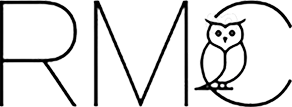Peak Performance
qEEG Brain Mapping and Neurofeedback Can Help You Achieve Peak Mental and Even Physical Performance
Who Can Benefit?
Individuals who can best benefit from qEEG Brain Mapping and Neurofeedback for peak mental and physical performance include high-performing professionals, athletes, students, and anyone seeking to enhance their cognitive abilities and emotional resilience. Those who experience stress, lack of focus, or mental fatigue can particularly gain from these interventions. Additionally, individuals looking to optimize their motor skills, reaction times, and overall physical coordination, such as athletes and performing artists, can find neurofeedback training especially valuable in achieving their peak performance goals.
How Can qEEG and Neurofeedback Help?
qEEG Brain Mapping and Neurofeedback are powerful tools that can significantly enhance both mental and physical performance. qEEG Brain Mapping involves recording and analyzing brainwave patterns to identify areas of the brain that are underactive or overactive. By providing a detailed map of brain function, qEEG can reveal insights into cognitive performance, emotional regulation, and overall brain health. For individuals seeking to achieve peak mental performance, this information is invaluable, as it highlights specific neural pathways that may benefit from targeted training.
Neurofeedback builds on the insights gained from qEEG by offering a method to train the brain to function more efficiently. During neurofeedback sessions, individuals receive real-time feedback on their brain activity through visual or auditory cues. This feedback helps them learn to regulate their brainwaves, promoting optimal brain function. For example, high-performing professionals, athletes, and students can use neurofeedback to enhance concentration, reduce stress, and improve emotional resilience. By achieving a state of optimal brainwave activity, individuals can experience increased mental clarity, faster cognitive processing, and better decision-making abilities.
The benefits of neurofeedback extend beyond mental performance to include physical performance as well. The brain plays a crucial role in coordinating physical actions, managing stress responses, and sustaining motivation and endurance. Athletes, for instance, can use neurofeedback to improve their focus during competition, maintain calmness under pressure, and enhance motor skills. By optimizing brain function, athletes can achieve better control over their movements, quicker reaction times, and improved overall performance. Moreover, neurofeedback can aid in recovery by promoting relaxation and reducing the effects of physical and mental fatigue.
In addition to its direct impact on mental and physical performance, neurofeedback fosters long-term brain health. Regular training sessions can lead to lasting changes in brain activity, supporting sustained improvements in performance. As a non-invasive and drug-free approach, neurofeedback is generally safe and well-tolerated, making it an attractive option for those seeking to enhance their abilities without the side effects associated with medication. By integrating qEEG Brain Mapping and Neurofeedback into their routine, individuals can unlock their full potential, achieving peak performance in both their personal and professional lives.
